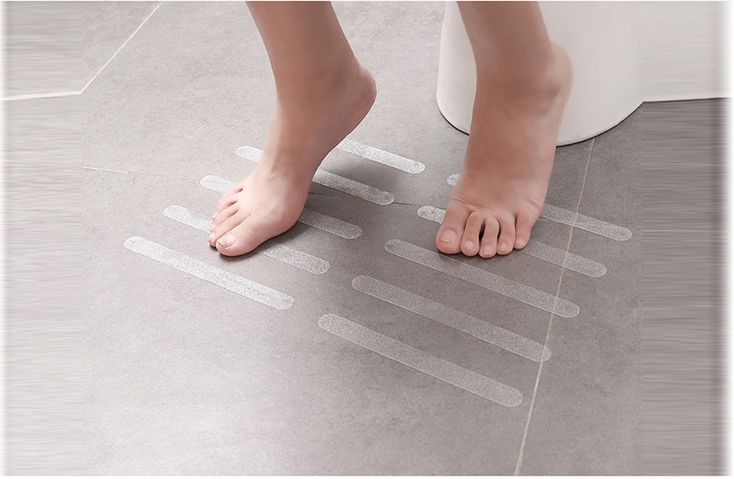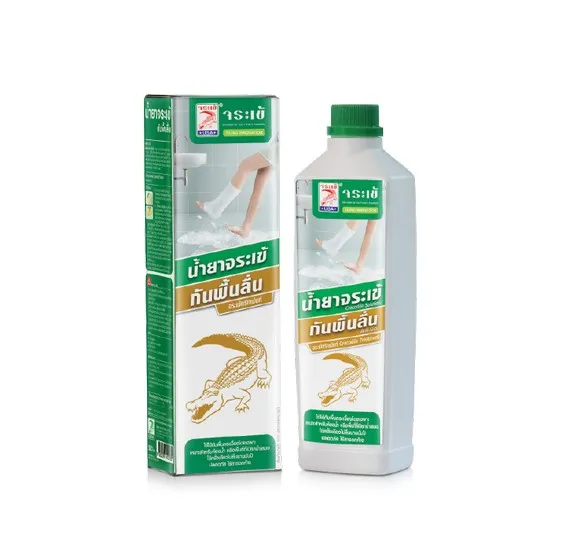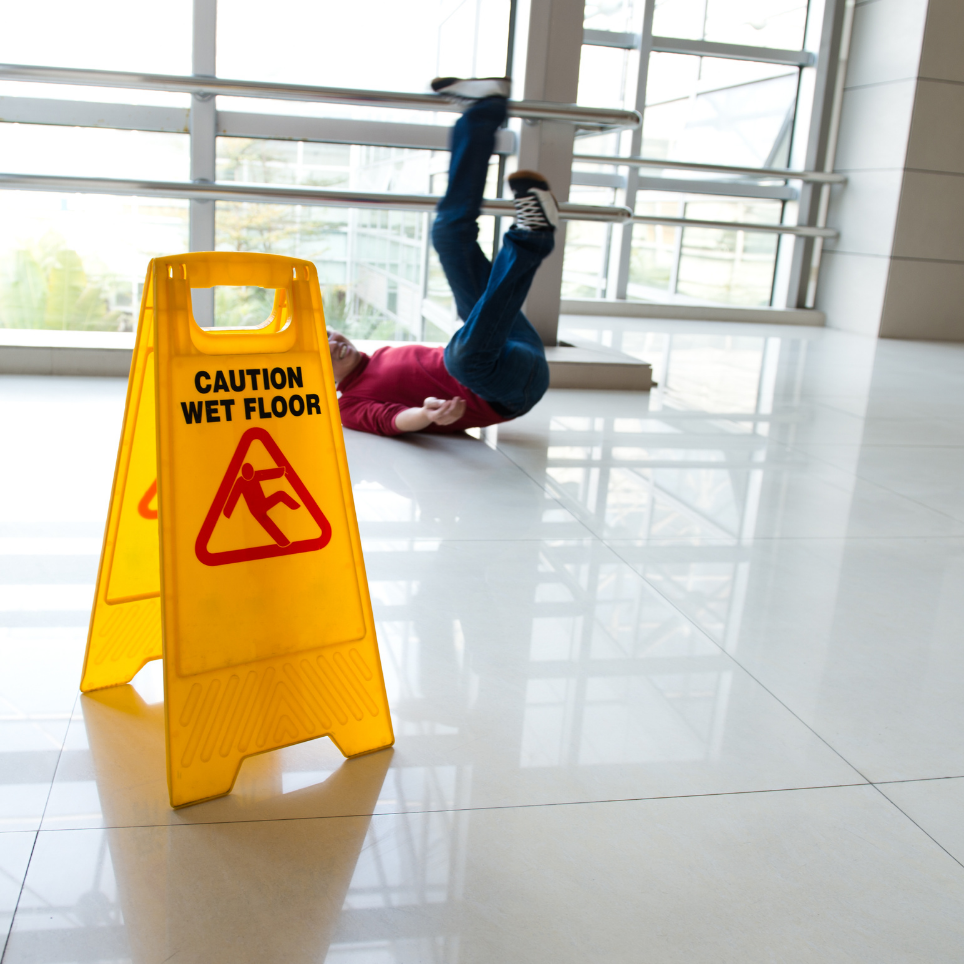The beautiful, glossy tile floor is a dream for many when they’re shopping. But in daily life, especially when faced with moisture during the rainy season, that beauty can become a terrifying hidden danger. The key question that comes to mind is, “What should I do when my tile floors are slippery?” This problem isn’t just limited to the bathroom; it includes the kitchen, balcony, and any area at risk of getting wet. Today, we’re unveiling the complete guide that will provide you with answers, from immediate fixes using items you already have to permanent solutions you can do yourself (DIY).

Level 1: Immediate Fixes with Household Items
Before looking for expensive aids, the main cause of slippery floors is often an “invisible film” created by soap scum, body oils, or residue from floor cleaning products. Therefore, the easiest and most important way to make floors less slippery is to clean them correctly.
- Wash with Vinegar or Baking Soda: Stop using floor cleaners that add shine and switch to a natural formula. Mix one part vinegar with two parts warm water to mop the floor. The acidity will effectively break down grease and soap scum. This is the most economical and safest way to make floors less slippery.
- Choose the Right Type of Non-Slip Mat: You should select mats specifically designed for this purpose, with a rubber backing that grips the floor well. Place them in strategic spots, such as in front of the bathroom and near the kitchen sink.

Level 2: Semi-Permanent Surface Improvements
If you need more protection than just cleaning, consider this option.
- Apply Anti-Slip Tape: This is a way to make floors less slippery with immediate results, suitable for specific areas like tiled steps. However, anti-slip tape typically has a limited lifespan of only 3-12 months and can peel off when exposed to moisture or frequent scrubbing.

Level 3: Solving the Problem with Chemical Solutions
For those who want more assurance, using specially designed chemical products is the answer. This is a very popular method for making floors less slippery.
- Anti-Slip Liquid Treatment: This type of liquid creates a chemical reaction that forms “microscopic pores” (micro-etching) on the tile surface, which increases friction when the floor is wet. The advantage is that it doesn’t change the look of the tiles, but its effectiveness may decrease over time with use.

Level 4: The Permanent, DIY Solution with Engineering-Grade Products
For those who want maximum safety and a long-term end to this problem, choosing an engineered solution is the best answer.

- Install Industrial-Grade, Pre-fabricated Anti-Slip Plates (amco NOW): This is the real hero for anyone asking, “What do I do about my slippery tile floors?” and wanting a sustainable answer. amco NOW is a non-slip plate that brings industrial-grade technology to your home for easy DIY installation.
- Superior Adhesion: Completely different from standard tape, amco NOW is installed with an “industrial-grade epoxy adhesive” that comes included in the kit. It creates a permanent bond that is resistant to water, moisture, and scrubbing, with no easy peeling.
- Industrial-Grade Durability: With a lifespan of over 5 years, you make a one-time investment for your family’s long-term safety. No more worries about frequent repairs or replacements.
- Easy Installation on Any Surface: It can be installed on a variety of surfaces, including tile, concrete, wood, or metal, allowing you to manage every risk area in your home comprehensively.

The problem of slippery tile floors is no longer something to be ignored. As you can see, there are various levels of methods to make floors less slippery, from temporary fixes to investing in permanent safety with a solution like amco NOW. Taking the time to act today is to create priceless safety for yourself and your loved ones.
Click for more information

Tags :
Categories :
Other Posts :
- Sand Filter vs. Alfawater: Which Water Filtration Technology Can Truly Cut Industrial Costs?
- 5 Surprising Ways This New Tech “APEF” Uses Physics to Revolutionize Water Treatment
- More Than amco ANTI SLIP: Why amco+ Antibacterial are the New Standard for Factory Safety
- Glow-in-the-Dark “amco ANTI SLIP” Safety for Emergencies
- “amco ANTI-SLIP” Solutions: Engineered Safety for Industrial Floors, Stairs & Ladders




